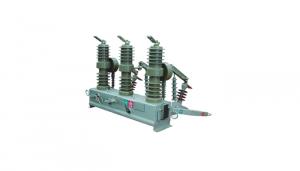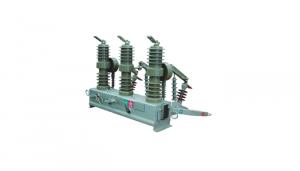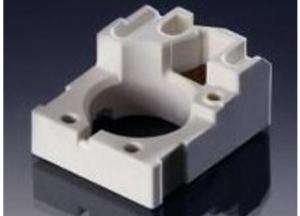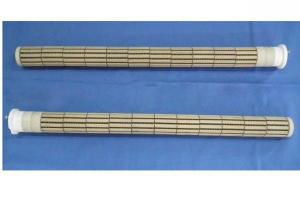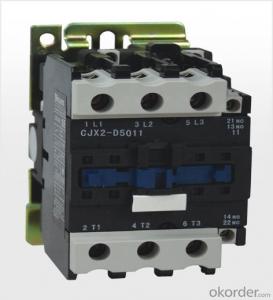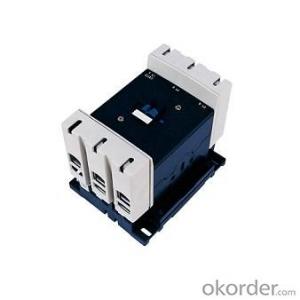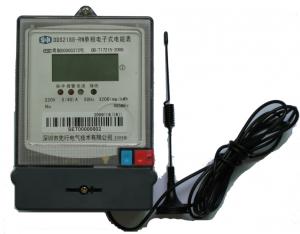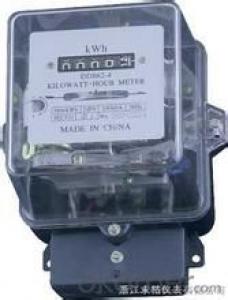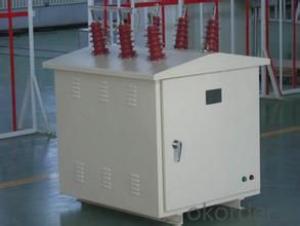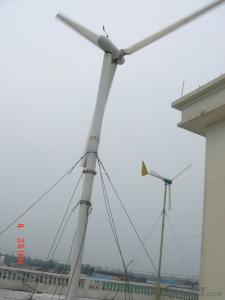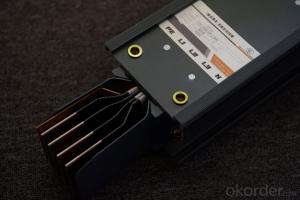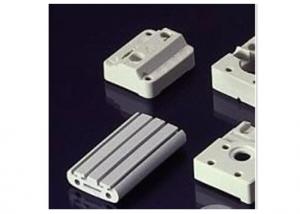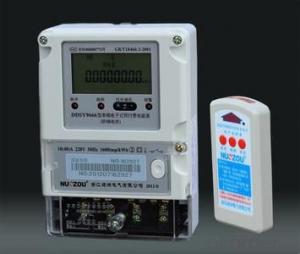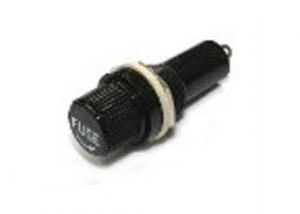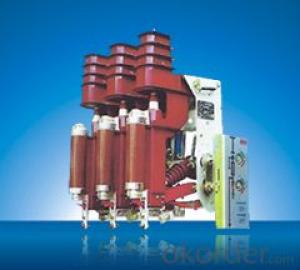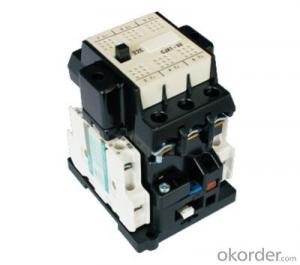FN12-12 Type Outdoor Medium-voltage Vacuum Circuit Breaker
- Loading Port:
- China Main Port
- Payment Terms:
- TT or LC
- Min Order Qty:
- -
- Supply Capability:
- -
OKorder Service Pledge
OKorder Financial Service
You Might Also Like
1. Product Description:
Circuit breaker refers to the closing, carrying and breaking under normal conditions of loop current and closing, hosted within the prescribed time and disconnect the abnormal loop current switching device. Circuit breakers are divided into high voltage circuit breakers and low voltage circuit breakers, and the high and low pressure boundary lines are relatively vague, which is generally referred to as high-voltage electrical apparatus by 3kV.
2. Product Characteristic:
The composite apparatus of FN12-12 and FNR12-12 is three-phase high-voltage switchgear with rated voltage 12kv, rated frequency 50Hz, applying to separate and close load current, closed-loop current, charging current of no-load transformer and cable, to close the short circuit current and assembling equip load switch of grounding switch. It can bear short circuit current. It is mainly applied as loading control and short circuit protection in downtown distribution station of three-phase rig net or terminal power supply and industrial consumer.
3.Specification:
C65N 1P | C1A | C2A | C4A | C6A | C10A | C16A | C20A | C25A |
C65N 2P | C1A | C2A | C4A | C6A | C10A | C16A | C20A | C25A |
C65N 1P | D1A | D2A | D4A | D6A | D10A | D16A | D20A | D25A |
C65N 2P | D1A | D2A | D4A | D6A | D10A | D16A | D20A | D25A |
D stands for power, C for lighting
4. Reference Picture:
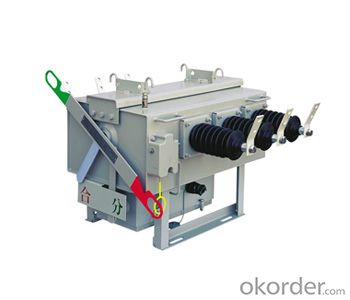


- Q:hey! i have a music man 112 rd 50 and have problems to go with it, im not sure what the issue is but heres what she is doing. when i turn her on i have to turn the volume all the way up to get sound (at least 6 to 10) and then the sound is very muffled and clips in and out, it is not reaching anywhere near the volume it should, ive changed the fuse (it was not turning on at first fixed that) i have also changed the preamp tube and other tubes, they all work fine as far as ii can tell (there new they better be) any idea what may be going on??
- If the fuse blew, something caused that (fuses going on their own are pretty rare). Chances are, you had a tube short which took out another component(s), and that took out the fuse. Music Man amps are actually kind of notorius for damaging the plate resistors when a power tube fails. I'm betting that's what happened, and now (even though you've replaced the power tubes), they're not getting adequate voltage on the plates to operate properly. Unless you know your way around a tube amp at the component level, I'd say take it to a good amp tech. Something like this shouldn't take more than an hour to diagnose and repair. Good luck. Greetings from Austin, TX Ken
- Q:I was plugging my tom tom into my ciggarette lighter to charge and a penny fell into the lighter hole. Im driving so I grab a pen to get it out and the pen bursts leaking ink everywhere. I then notice my car radio just shuts off. I try to get the ink out as best as possible and I plugged up several chargers, but none come on and nor will my radio. Did I really screw something up I can't live without GPS or Tunes. Real help only pleaseI'm gonna go to Auto Zone tomorrow to test fuses, but any help still appreciated.
- You mite take some rubbing alcohol to help with getting the ink out. I'm sure you just blew the fuseto the radio lighter.Test light works nice.
- Q:Hey, just a bit of physics revision and I was wondering if anyone knew the function of these circuit components, what they do in the circuit, what they measure, why it's needed, etc. Here are the components in a circuit I need to know about:SwitchCellBatteryDiodeResistorVariable resistor LampFuseVoltmeterAmmeterThermistorI.D.R (What does that stand for?!)It would be great to go into detail of what they really do, although some may seem quite straight forward, and just common sense! Even if you don't know them all, or you just know a few, the explanations still help :) Thanks!
- Switch- Turns the circuit on. Cell- Basically, a single battery Battery- A pair of cells. Diode- A semiconductor device with two terminals, typically allowing the flow of current in one direction only. Resistor-A resistor is an electrical component that limits or regulates the flow of electrical current in an electronic circuit. Variable Resistor- A variable resistor is a potentiometer with only two connecting wires instead of three. Lamp- A device for giving light, either one consisting of an electric bulb, together with its holder and shade or cover, or one burning gas or a liquid fuel. Fuse-an electrical device that can interrupt the flow of electrical current when it is overloaded. Voltmeter- A device that measures Volts. Ammeter- A device that measures Amps. Thermistor-A resistor whose resistance varies as a function of temperature. Thermistors are used in electrical devices such as thermometers and thermostats that measure, monitor, or regulate temperature. I.D.R- Interval data recorder.
- Q:I have an assignment on 'Electricity in the home'. The part i have to research on is the components of the main eg; main wire, live wire, neutral wire, 3pin plug, fuse, switch.What do these fall under? I cant jus look for main n find these components. I was told its the 'Main Circuit Breaker'. Im lookin for this and non of the components i listed are on the sites. Is there a particular word i have to use. Are there any other components im missing other than the ones listed above?i jus need to write short notes and get some pictures but im not finding any information.
- components are: circuit breaker aka MCB circuit breaker box aka distribution panel aka Consumer unit wire of various sizes wire staples outlets switches lights (permanent mounted in ceiling or wall) Parts attached to the appliance, not part of the mains plug wire and the various tools used to put it all together.
- Q:If I drive my car at like 8pm my battery will be fine the next day. But if I don't drive after I get off work at 4 then the next day it won't start.I will have some power like the light under the hood. It always starts when I jump it.I had my alternator tested and it's fine. The same goes for my battery.Any ideas?
- There is a short. You need a voltmeter with an amp setting. Disconnect the negative battery cable. Put one voltmeter lead onto the negative battery post and another onto the negative battery cable. If you read more than 50 mA it is being drained through a short. 0-10 mA is more typical. Find the fuse box inside the car, often near the brake pedal, and start pulling fuses one by one until the short disappears. Find the name of the fuse connected to the short and that's where your problem is. Next remove/replace/fix that component. As a temporary solution you may leave that fuse out if the component is not essential. If you don't understand the name of the fuse then try google. If you don't want to get a voltmeter then disconnect the negative battery terminal when you aren't driving the car, then reconnect when you need it. This will prevent any power drain. Take it to a mechanic and he'll know how to do the above quickly and easily.
- Q:I recently bought an old 2002 Hyundai Elantra, and it runs ok, except it won't start nearly every morning. My mechanic told me the battery's most likely going. The only reason I'm thinking it's something else is because every morning when I go to start the car, there's a loud, intermittent noise coming from the fuse box; it's like a loud grinding/electrical noise that only lasts about a second at a time, but continually comes back almost on perfect rhythm (think of your directional, same sort of rhythm). Sometimes the lights will flash on and off with the noise too. Could this be something other than a bad battery? Or is it possible that these symptoms suggest a more electrical problem? Any help is greatly appreciated!
- From your description, I understand that indeed there is an electrical problem. I would start with what is called wiggle test. While engine is running, try gently to wiggle the fuse box back and forward. Should you find any abnormalities in engine running or engine stalls or anything that shouldn't be doing out of the ordinary, you can say that the fuse box is your problem. If all good, secondly I would remove the fuse box and do a pin test on all fuse box connectors from under the box (wiring harness that plugs into fuse box). This will tell you if any male connector is loose. Should you have any loose connectors, just close them up a tiny bid so that they wont move. Before you put the box back, apply some electrical stabilant to ensure proper conductivity on all electrical components. This procedure could be time consuming but is well worth it to try. Finally, before you do all these actions please, have someone doing an AVR test to ensure your battery is good and entire charging/starting system is normal. Hope this will help you.
- Q:I have a 1989 5.0 l camaro that wont start. Ive replaced the starter battery and nothing. Ive also tried jumpstarting the car and still nothing. When i turn ob the ignition switch nothing happens. no sound or click. When i turn the switch on all other components start but the car just wont turn over. Its missing the crank fuse might it have to do something with it? Really need some help pls.
- If it's missing a crank fuse, it won't start.
- Q:I'm doing some wiring and I do not quite understand the difference between AC12v and DC12v. I need an item to run on DC12v, Can I simply clip the wires on my object that needs DC12v and connect the appropriate ends to the appropriate battery terminals?Please do not answer (12v) ^^ Thanks!
- AC 12 v probably does not exist. ac is household power source. DC 12v is car battery output, you can take power for a limited period from your car battery. depending on the amperage needed (drain on power) and condition of battery you can expect an hour for a colour t.v. to 12hrs for a radio or medium torch. at this point you will need to recharge, it is important not to completely flatten the battery, unlike ni-cads this is harmful to car batteries, you will get better results from a proper leisure battery, as used in caravans/motor homes
- Q:I had lab and I don't quite understand why I did what we did. We used an analog and digital VOM and used it to record the ohms and volts of various electrical components. I was wondering why when using the analog that different devices read completely different ohm readings. Take for example, our Buss fuse didn't even make the needle move, but the diode and the resistor made it go to infinite ohms. How do I figure out what they are supposed to read, and what to expect before going to lab. I couldn't find anything in my book or the lab manual. Also, I was wondering why a resistor would measure outside of its' tolerance range. Is this because it was faulty? Any help is appreciated.
- Because the fuse is supposed to just create a short circuit when the current is larger than what it's supposed to be. the fuse must conduct therefore it won't have a large resistance whereas a resistor such as a light bulb or any other load is clearly to have high resistance, as the name resistor indicates.
- Q:I was trying to replace my ceiling light bulb in my 97 honda accord and yes i was stupid and didn't disconnect the negative terminal from the battery. And yes i blew out one of the fuses. I replaced the fuse and then noticed that my passenger door the one right behind the driver that when i open it the ceiling light wont come on but all the rest of the doors when i open it the ceiling light would come on. I thought it was the door jam switch so i replaced it and it still won't come on. I also checked every single fuse and all of them are still good. So i'm guessing that its the wiring so now i am wondering if its my wreckless short circuit that may have caused the wiring damage. Or short circuit does not cause wire damage. By the way my car only has one interior light which is that ceiling light. Thanks in advance for any answers!
- Look up how to use a VOM read it. Any sufficiently advanced technology is indistinguishable from magic. They got you at DC Electricity in use for the last 200 years. LOL!
1. Manufacturer Overview |
|
|---|---|
| Location | |
| Year Established | |
| Annual Output Value | |
| Main Markets | |
| Company Certifications | |
2. Manufacturer Certificates |
|
|---|---|
| a) Certification Name | |
| Range | |
| Reference | |
| Validity Period | |
3. Manufacturer Capability |
|
|---|---|
| a)Trade Capacity | |
| Nearest Port | |
| Export Percentage | |
| No.of Employees in Trade Department | |
| Language Spoken: | |
| b)Factory Information | |
| Factory Size: | |
| No. of Production Lines | |
| Contract Manufacturing | |
| Product Price Range | |
Send your message to us
FN12-12 Type Outdoor Medium-voltage Vacuum Circuit Breaker
- Loading Port:
- China Main Port
- Payment Terms:
- TT or LC
- Min Order Qty:
- -
- Supply Capability:
- -
OKorder Service Pledge
OKorder Financial Service
Similar products
New products
Hot products
Hot Searches
Related keywords
